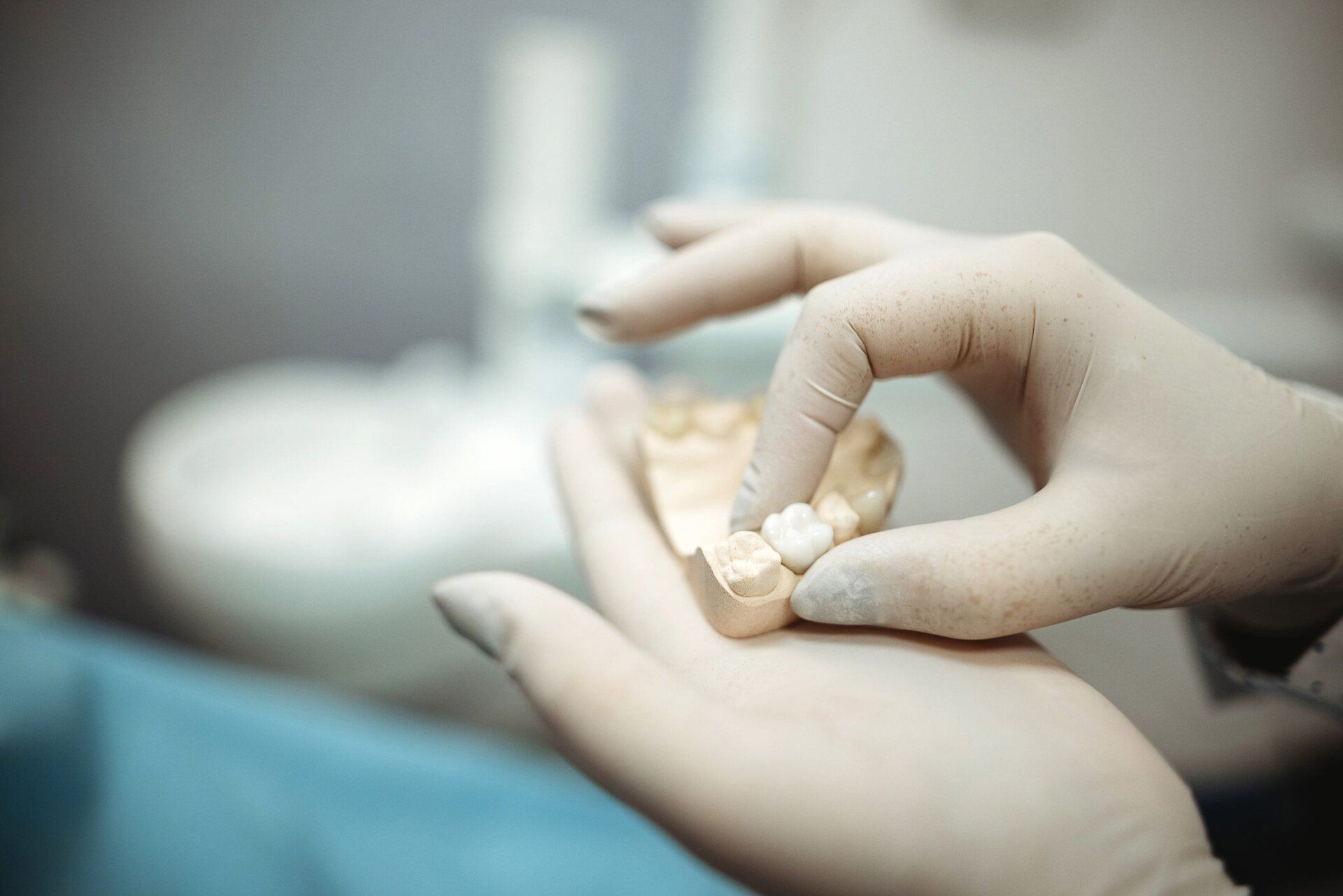Two Locations to Better Serve You
Benefits of Dental Crowns

Dental crowns are one of the most sought after restorative dental procedures. Dental crowns, also called dental caps, are permanent prosthetic teeth that fully cover teeth with structural impairment due to fracture, breakage, or decay. Dental crowns offer extra support to a damaged or weak tooth to preserve the tooth's functionality and appearance. Made of metal, porcelain, resin, or ceramic, dental caps also help improve a tooth's shape and alignment.
Dental crowns are a more viable solution than other dental procedures in some oral cases. Crowns are ideal for severe cavities, root canals, fractured or broken tooth, fractured fillings, or stained and misshapen tooth. If you suffer from any of these oral issues and want a smile makeover, consider dental crowns.
But is this restorative dental treatment the right option for you? Check out the following benefits of dental crowns.
Protect Weak or Damaged Tooth
Enamel is non-living tissue, and it can't grow back after damage. Missing or worn enamel make your teeth more vulnerable to decay, cavities, and infections and can damage your smile. Thus, if your tooth has enamel erosion and damage, you need dental crowns to protect and support the damaged tooth.
Dental crowns protect an already damaged or weak tooth by encasing the entire tooth. The cap works by keeping potential irritants at bay. Without the crown, bacteria, food particles, acids and saliva in the mouth can further erode the enamel, exposing the sensitive tooth parts.
Also, dental crowns strengthen a weak tooth and protect it from the bite forces, preventing worse damage. If a tooth has fragmented parts, the crown will hold the falling parts together and maintain the tooth's functionality.
Relieve Discomfort
A structurally damaged tooth, such as one with eroded enamel, can cause discomfort. Your tooth may be sensitive to temperature or pressure. A broken, fractured, or chipped tooth can also be constantly painful if left unattended.
When the dentist identifies the underlying problem and recommends a treatment such as fillings or root canal treatment, a dental crown will also be necessary. The cap will help to reduce tooth sensitivity. Thus, if your damaged tooth is sensitive to cold or hot foods and drinks, the crown ensures the tooth doesn't come into contact with the food, reducing discomfort.
Also, if you have a broken tooth, it may have sharp edges that might injure your tongue or cheek. A dental crown will cover the entire tooth and ensure the sharp edges don't cut other oral structures.
Fit Your Mouth
One of the outstanding benefits of dental crowns is that the dentist will design them to match the size, shape, and color of your existing teeth. The aim is to ensure the dental crown looks as natural as possible so that people can't tell if you have the cap. And besides the similar appearance to your existing teeth, dental crowns also function as the original teeth.
When doing this restorative procedure, the dentist will make a mold of the damaged tooth and send it to the lab for manufacturing. The technicians will then create a dental crown with exact specifications for your teeth. Your dentist may provide temporary crowns as you wait for the permanent ones to be ready.
Sometimes, you can get a custom crown within a day, and you won't have to wait. Thus, when seeking the treatment, ask your dentist how long it might take for you to get your custom-made crowns.
Also, during this procedure, you can choose the material you want for your dental crowns depending on preference, budget, and needs.
A dental crown can help you achieve a healthier, more beautiful smile and restore your teeth's functionality. To enjoy all the benefits of dental crowns without complications, seek treatment from a reputable dental clinic. If you need dental crowns or other dental services, contact
New England Dental Health Services P.C.
Business Hours:
- Mon - Fri
- -
- Sat - Sun
- Closed





Financing & Interest-Free Payment Plans Available: Wells Fargo, CareCredit

